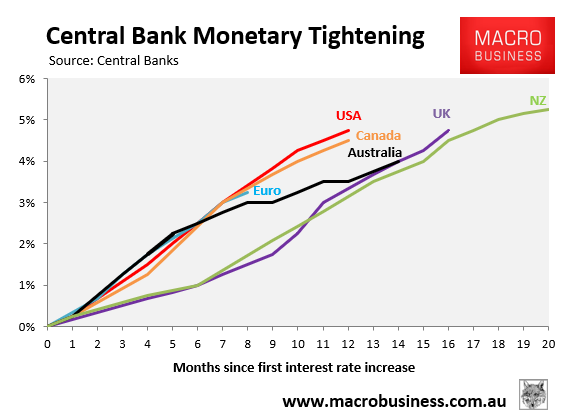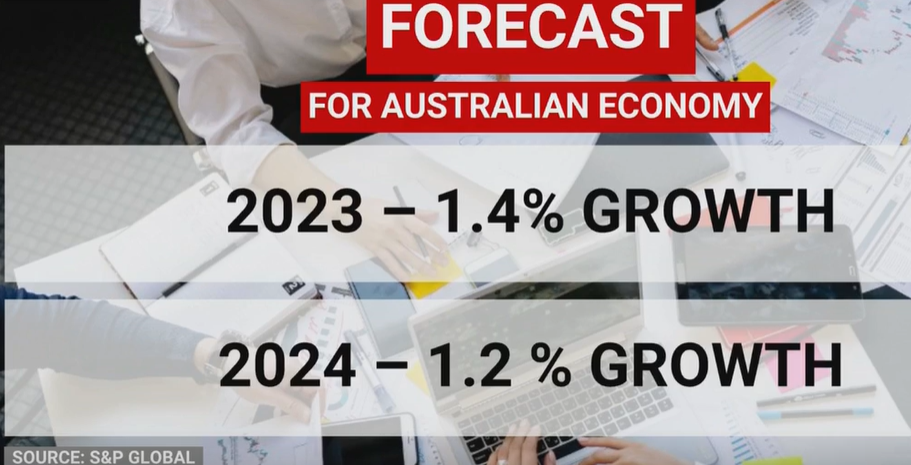Despite Australia hiking official interest rates by less than most other developed nations, higher interest rates are forecast to make Australia one of the Asia Pacific region’s worst performing economies over the next two years.

Ratings agency S&P Global has compared the Australian economy to 14 others in the region, and it is anticipated that Australia’s GDP will only grow by 1.4% in 2023 and then only 1.2% in 2024.
Australia will be the fifth slowest growing economy this year and the second slowest economy in 2024 (behind Japan at 1.1%):

Source: Sky News
Because most Australians are on variable rate mortgages, the increase in average mortgage rates from the RBA’s 4.0% of rate hikes has been far higher in Australia than elsewhere in the world, despite their central banks’ more aggressive monetary tightening.
Australians also carry the second highest household debt loads in the world, making us far more sensitive to increases in mortgage rates.
The latest federal Budget forecast that Australia’s population would grow by 1.9% in 2023 and by 1.6% in 2024:

Source: 2023 federal budget
Therefore, Australians are looking at two consecutive yearly declines in per capita GDP of 0.5% and 0.4% respectively, according to S&P Global, meeting the definition of a ‘per capita recession’.
Australia’s per capita economic growth next year will also be far worse than Japan’s given its population is shrinking while Australia’s is growing like a science experiment.
The only thing keeping Australia from experiencing a ‘technical recession’ is the Albanese Government’s extreme immigration policy.
Thus, quantitative peopling has yet again ‘saved’ the Australian economy, at least in an aggregate sense.
However, everybody’s slice of the economic pie will shrink while the projected 917,000 growth in Australia’s population over two years will crush-load living standards.

